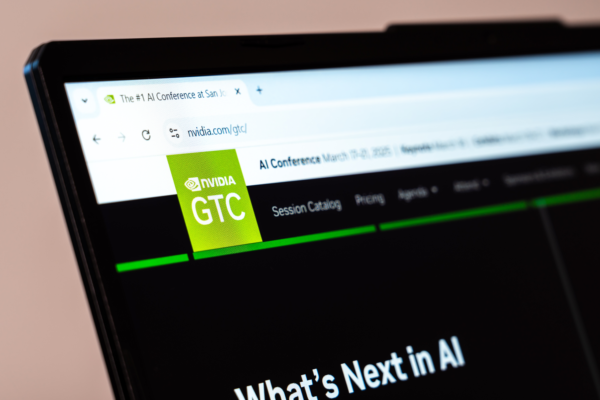Oracle releases ML-optimized GraalVM for JDK 24
Oracle has released GraalVM for JDK 24, an alternative Java Development Kit tuned to just-released JDK 24 that uses ML (machine learning)-based profile inference to boost peak performance by about 7.9% on average on microservices benchmarks, the company said. GraalVM for JDK 24 was released on March 18. GraalVM for JDK 24 can be downloaded […]
Read MoreNvidia launches AgentIQ toolkit to connect disparate AI agents
While Nvidia’s intention with the toolkit is to help enterprises break down silos between different agent systems, According to Chada, several similar systems can offer similar capabilities. These include LangChain, CrewAI, and Microsoft’s Semantic Kernel. [ Related: Agentic AI – Ongoing news and insights] The Nvidia toolkit also includes a configuration builder that allows developers […]
Read MoreBridging the digital skills gap
A recent McKinsey study highlights that 87% of executives now view skill shortages as a critical barrier to their digital transformation efforts. The digital skills gap hinders a company’s ability to fully leverage advanced technologies such as artificial intelligence, cloud computing, data analytics, and cybersecurity. Although this lack of qualified people is not a new […]
Read MoreOracle, Nvidia partner to add AI software into OCI services
While making software such as the AI Enterprise stack and NIM available through its services increases customer adoption of Oracle’s core compute, and storage offerings, the partnership provides Nvidia first-class citizenship to a major cloud provider, driving additional usage of GPUs and related software, resulting in more stickiness, Alletto explained. Additionally, Moor Insights and Strategy’s […]
Read MoreEveryone needs a genAI strategy now
Does your company have an AI strategy yet? Our top stories this month point to the perils of not having one—including but not limited to the rising threat of shadow IT. We’re also looking ahead to the future of highly adaptive UIs, the rise of citizen developers, and what’s happened to developer communities like Stack […]
Read MoreHow to implement idempotent APIs in ASP.NET Core
Now let’s get started with our implementation. For our example, we’ll use a simple shopping cart application. Create the model classes In the project we created earlier, create the following classes in the Models folder. public class Product { public int Product_Id { get; set; } public string Product_Code { get; set; } public string […]
Read MoreAstro with HTMX: Server-side rendering made easy
$ npx astro add node Services Let’s start building our custom code at the service layer. The service layer gives us a central place to put all our middleware that can be reused across the app. In a real application, the service layer would interact with a data store via a data layer, but for […]
Read MoreHow to simplify app migration with generative AI tools
When possible, a best practice is to generate test cases and a testing framework on the legacy application before migrating it. Then, equivalent test cases on the new application can be used to benchmark results across the two application versions. “AI-powered testing frameworks further accelerate the process by auto-generating test cases, integrating security checks earlier […]
Read MoreOracle reveals five new features coming to Java
With JDK (Java Development Kit) 24 having just reached general availability, Oracle has given a sneak peek at Java features set to arrive in the not-too-distant future, ranging from enhanced primitive boxing to null-restricted value class types. Oracle on March 18 cited five features that were being prepared for an upcoming Java release, including stable […]
Read MoreSpeeding up .NET application development with Uno Studio
Developer productivity is one of those topics that never goes away. How can we not only make it easier to deliver code but also make that code more reliable and resilient? As a result, we’re seeing something of a renaissance in developer tools, from AI-based pair programming to low-level refactoring services, and even better ways […]
Read More










